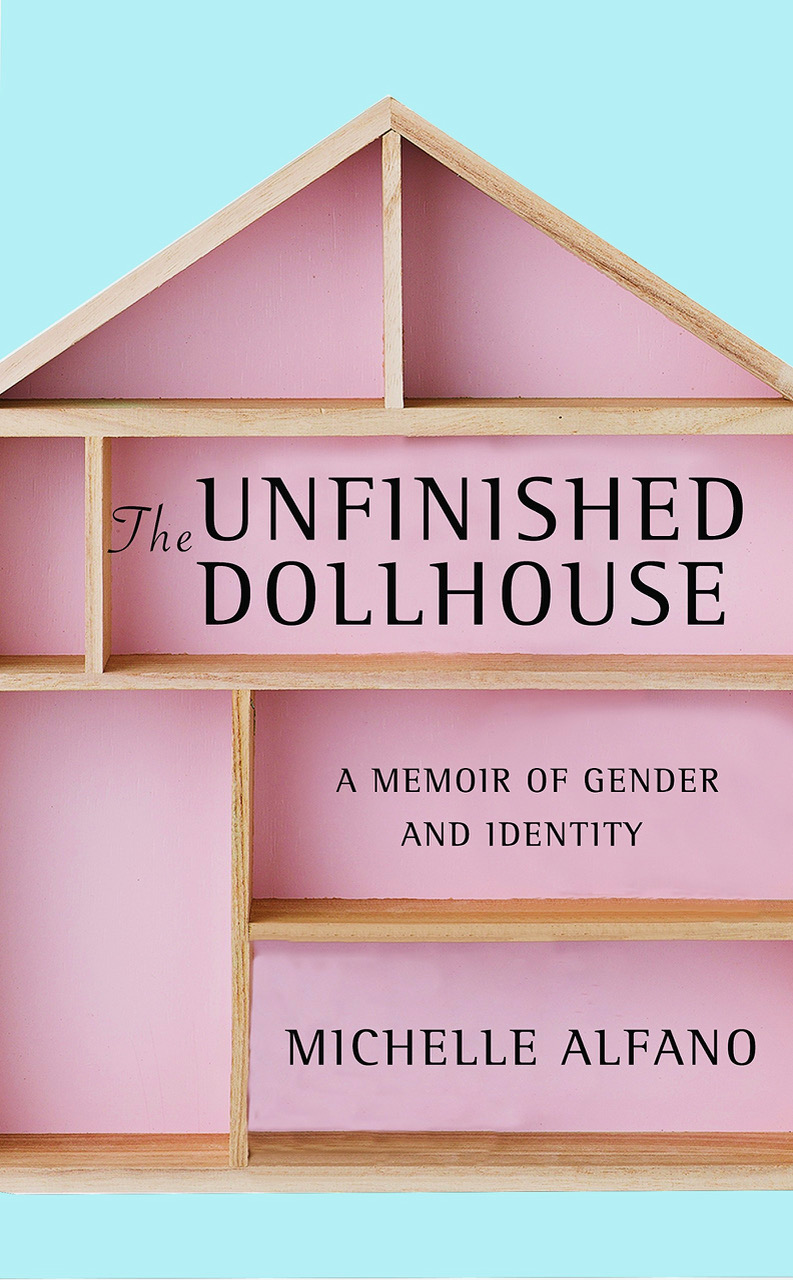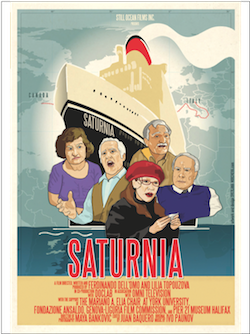Just in time for International Women's Day. Welcome to the new paradigm ... F-you feminism.
How did we get to this juncture dear friends? How did we, as feminists, come to represent
the whiny, self-obsessed end of the politically progressive spectrum? Shall we
blame it on the legacy of the Me Decade ... on our unending sense of
entitlement whether we are male or female ... on our obsessive focus on
first world problems?
I would like to begin on a serious note: parsing a
recent article written
by
Stacey May Fowles in the
National Post on the sexual assaults in the Bloor
and Christie area of Toronto last summer. She was writing about these events
through the prism of a personal assault she had experienced in her own past and
her difficulty in discussing it in public. It was very well written -
passionate, personal and highly charged. I know Stacey a little through the literary community and was quite moved and disturbed to read of this.
She had me until she mentioned, in that same article, an
incident that occurred when a friend of hers was escorting her home during the summer of those precarious days last year:
While we were walking past Bloor and Grace, where one of the
assaults reportedly occurred, two extremely drunk boys, estimated to be in
their teens, staggered towards us and slurred their directions. We obliged
them, and watched as they stumbled on their way, towards the subway. In that
moment, I realized they were enjoying a freedom I had never had and could never
have. Blind drunk and exposed in the middle of the night, they wandered
gleefully, happily and safely, conversing with strangers and inviting
attention. The very things the written words that week had told me I wasn’t
allowed to do.The idea of it — their liberty vs. my need to be gratefully,
soberly escorted by virtue of my sex — enraged me. In fact, we should all be
enraged, every moment of every day, in a way that words can never express.
She fumed: why did these boys have the right to be publicly drunk and
she did not because she might be in jeopardy as a female? This knocked me back
a bit. Since when do we, as women, have the inalienable right to be drunk in
public without fear of repercussion? Let me clarify this for you: we do not. No one does.
I said as much on facebook when I posted the link to Fowles' article. The blow back was interesting
and, I feel, definitely broke down along generational lines. One or two of my younger
female friends were quite annoyed with me. The right to getting drunk in public is not the point I was told very explicitly. I'm afraid that I have missed the point then. You want the right to engage in unsafe behavior in public, because men to do so regularly without repercussion (which I don't believe by the way)? Have I understood you?
To be quite honest, I recall a similar reaction, on my own
part, when the sporadically intriguing/annoying Camille Paglia made similar remarks in a
Playboy interview that were
perceived to be quite inflammatory, almost twenty years ago, about women not
getting so drunk that they couldn't physically resist or say no to a man who
wanted to engage with her sexually on a date. It was said in her usual caustic, grating manner but there was a logic to it that eluded many feminists, including
myself, at the time. She wanted us to be accountable for our own actions and
to not be so debilitated physically that we couldn't control what was happening to us. This particular point struck a nerve.
Flash forward to a few months ago ... a male friend of mine, a bit
of a provocateur, asked on facebook whether we, his facebook friends, agreed
with the views of a well known advice columnist writing under the
nom de plume Dear Prudence passing judgment on a complex
situation involving a possible date rape. The scenario was, in short:
Boy meets girl and
they get very drunk - they wake up together and the girl is horrified because
she doesn't know if she consented to sex and wants to report it to the police. A second girl, who knows both the boy and the girl,
is alarmed that she would do so, having witnessed both being drunk and appearing
to get along very well the night before. She doesn't want her friend to contact the police. The
advice columnist agrees with the letter writer and says that the alleged victim shouldn't proceed, she has no proof, don't ruin this guy's life.
So, honestly, not privy to any of this on-line reaction yet, I wade in on
facebook to respond to my friend's query. I say that, possibly, what the alleged injured
party said is true; however, there is no proof that she was raped or had intercourse against her will. She can't
even recall having intercourse; therefore, it would be wrong to go the
police claiming such. And ... that women have an obligation to be careful because it is a very dangerous environment out there when you mix potential sex and alcohol.
I can feel a certain element out there already gnashing their teeth ... so let me clarify. I believe it is wrong to assault women, especially if they are drunk. The women are not asking for it if they are drunk and it happens. It's evil and wrong to harm women, to take advantage of them when they are intoxicated; however, in view of the fact that it happens does it not behoove us to be careful as women?
Only one brave soul came forward to challenge my
viewpoint in a torrent of angry accusations on facebook. (I imagine everyone else thinking -I ain't touching that one!) She said I made "little
sense" and "you sound like you are being
passive". I also sounded "unfeminist" blah blah bah. I won't bore
you with the rest because for every post I wrote she wrote four or five giving me
a Feminism 101 lesson on rape and sexual assault about all the myths associated with rape because, apparently, I am in need of being educated on sexual assault - having never been sexually harassed or threatened with violence by a male partner. Here I will quote Noel Coward on the concept of "assumption": When you assume, you make a ...
I should be thicker skinned and to paraphrase my teenage daughter
who counseled me: "What do you care what this 20 something nobody
thinks?" However, it does rankle when, at this tender middle age, I must prove my progressive political credentials before I dare speak on any issue.
When I challenged my new on-line friend on her views she replied
"I did not say you were not a 'feminist' overall, just as I can light
incense, and stare at a buddha picture, and call myself a Buddhist."
Indeed, just as some hapless female might squawk and screech and claim they are
being a feminist, that doesn't make you one either if you are being insensible to reason. Assuming that men are always in the wrong, nay always the criminal and violent participant in every encounter between male and female, without
proof of any kind, is not feminist, it's, well, let's call a spade a spade ...
idiotic.
Think of it this way in reference to the issues that Fowles
raises in the first article I mentioned ... would I counsel a good friend (or anyone) belonging to a visible minority to
avoid going to particular sections of this city, or any other city, alone? I
would. Am I being racist or demeaning towards that person? No, I don't think
so. Do they have a right to go anywhere they like regardless of skin colour? Of course they do! But it's
a matter of being sensible, of being careful. Would I send an affluent friend
dressed in expensive clothes through an impoverished area - without warning,
without a guide? Am I trying to deprive her of some right in doing so?
Or this scenario: I go to a friend's house. The next day, I open my wallet and think to myself I thought I had fifty dollars, I know I had fifty dollars, someone in that house robbed me. Did they? Could you then go to the police and say, "I think I was robbed. I think my friend robbed me."
Why this belligerence, this resistance to common sense? I
want to do [fill in the blank] ... how dare you imply it's the wrong thing to
do? The unsafe thing to do? How dare you challenge my assumptions? You are not
a"true" feminist if you challenge me on this, F you!
With the tide of Third Wave feminism in the 60s and 70s, think of the
brave women who came before us ... were they
as obsessed with these personal "freedoms" and imagined slights on our freedoms? Did they not have a more
universal perspective in advocating for access to abortion and birth control,
eradicating racism and class differences, daycare for working women, pressing for the rights of oppressed women in other countries,
marching against domestic violence and for equity in the workplace?
The American writer Tom Wolfe coined the term
"Me Decade" in
a
magazine article in 1976. It describes a general attitude towards "atomized individualism" versus the
communitarianism of the 1960s. What are we advocating for now? A whole litany of rights and freedoms that easily slip into the category of first
world problems ...
Whether it's Naomi Wolf whining in her prolifically produced books about trying to finding a diaper changing station (
Misconceptions) or the fact that we put too much emphasis on beauty (
The Beauty Myth) or the importance of her hoo-ha through history (
Vagina:
A New Biography) ... or Jezebel telling her on-line readers that women
are forced to wear make up and she really resents it ... or Phoebe Baker Hyde explaining what prompted her to swear off make up for a year in
The Beauty Experiment (I have to take care of this baby and be pretty too? aahhh, that's not fair!).
Really?
Really.
You know, sometimes, more often than not,
I agree with some of these positions but I just can't bear the petulance with which these opinions are put forward
, the rage it elicits when you don't agree completely with their theories. Listen to Wolf for five minutes in an interview and you are ready to tear you hair out at her arrogant, petulant responses.
In these instances, I think of Republican Governor Bobby
Jindal's recent pleading with the
GOP to
"stop being the stupid party" in the
wake of the defeat of the Republican candidate in the 2012 Presidential
elections. Think about the issues ... advocate, argue, debate. Do not just blindly attack anyone that opposes your point of view.
Do you want to be a feminist or do you just want to be a damn fool who says she's a feminist?

















